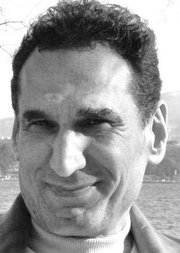
Ezzedine Salim, also known as Abdelzahra Othman Mohammed, was an Iraqi politician, author, educator, Islamist theorist and one of the leading members of the Iraqi Dawaa Movement between 1980 and 2004. He served as the President of the Governing Council of Iraq in 2004.

Salim Ahmad al-Huss also spelled Selim El-Hoss, is a Lebanese politician who served as the prime minister of Lebanon and a longtime Member of Parliament representing his hometown, Beirut. He is known as a technocrat.

Jewad Selim (1919–1961) was an Iraqi painter and sculptor born in Ankara, Ottoman Empire in 1919. He became an influential artist through his involvement with the Iraqi Baghdad Modern Art Group, which encouraged artists to explore techniques that combined both Arab heritage and modern art forms. He is considered to be one of Iraq's greatest 20th-century sculptors.
Shin-Lamedh-Mem is a triconsonantal root of many Semitic words. The root meaning translates to "whole, safe, intact, unharmed, to go free, without blemish". Its earliest known form is in the name of Shalim, the ancient god of dusk of Ugarit. Derived from this are meanings of "to be safe, secure, at peace", hence "well-being, health" and passively "to be secured, pacified, submitted".

Hisham Matar is an American born British-Libyan writer. His memoir of the search for his father, The Return, won the 2017 Pulitzer Prize for Biography or Autobiography and the 2017 PEN America Jean Stein Book Award. His debut novel In the Country of Men was shortlisted for the 2006 Man Booker Prize. Matar's essays have appeared in the Asharq al-Awsat, The Independent, The Guardian, The Times and The New York Times. His second novel, Anatomy of a Disappearance, was published to wide acclaim on 3 March 2011. He lives and writes in London.

Naziha Salim was an Iraqi artist, educator and author, described by the country's president, Jalal Talabani, as "the first Iraqi woman who anchored the pillars of Iraqi contemporary art".
Rashad Salim is an Iraqi artist and activist based in London.
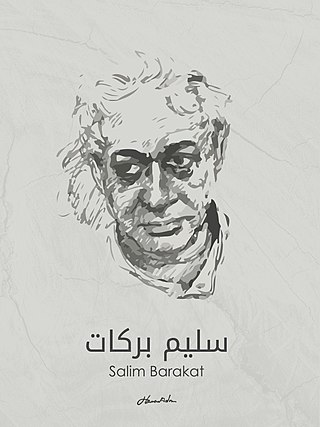
Salim Barakat is a Kurdish-Syrian novelist and poet. He is considered one of the innovative poets and novelists writing in Arabic. Since the 1970s, he has published numerous novels, poetry collections, biographies and children's books. Several of his works have been translated into Kurdish, English, French, German, Swedish and other languages.

Abu Salim prison is a maximum security prison in Tripoli, Libya. The prison was notorious during the rule of Muammar Gaddafi for alleged mistreatment and human rights abuses, including a massacre in 1996 in which Human Rights Watch estimated that 1,270 prisoners were killed.
Muhammad Afifi Matar, was an Egyptian poet. He was born in the village of Ramalat al-Anjab in the Menoufia region of the Nile Delta. He went to school in Menouf and afterwards moved to Cairo where he studied philosophy at Ain Shams University.

The disputed territories of northern Iraq are regions defined by article 140 of the Constitution of Iraq as being Arabised during Baath Party rule in Iraq. Most of these regions are inhabited by non-Arabs, including Kurds, Assyrians, Yazidis, Turkmens/Turkomans, and Shabaks.
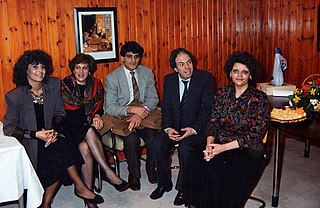
Ahmed Matar is a revolutionary Iraqi poet who has been living in exile for decades, most recently in London.

Nader Charbel Matar is a professional footballer who plays as a midfielder for Lebanese Premier League club Ansar and the Lebanon national team.

Altun Kupri is a town in Kirkuk Governorate, Iraq. Its inhabitants are predominantly Turkmen, with a minority of Arabs and Kurds. It is located on the shores of the Little Zab and on the Erbil–Kirkuk road. The town is described as having an 'intrinsic strategic significance' and is disputed.
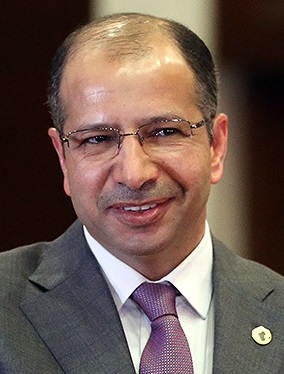
Salim Abdullah al-Jabouri (Arabic: سليم عبدالله الجبوري) is an Iraqi politician who was elected as the Speaker of the Iraqi Parliament on 15 July 2014 until 1 July 2018.

Mostafa Ali Matar is a Lebanese footballer who plays as a goalkeeper for Lebanese Premier League club Ahed and the Lebanon national team.
Amira Hilmi Matar is an Egyptian scholar and writer born in 1930. She holds a PhD in philosophy from Cairo University. She has several studies, research and translations in philosophy. She won several awards including the State Encouragement Prize in Social Sciences from the Supreme Council of Culture in 1985.
Salim Qabain (1870–1951) was a Palestinian teacher, journalist, writer, historian, and translator. He is considered one of the most important Palestinian and Arab literary figures, especially in translation, and one of the first Arab translators who introduced the Arab reader to Russian literature, as he was nicknamed "The Dean of Translators from Russian."
Al-Riyadh Sport Club, is an Iraqi football team based in Hawija District, Kirkuk, that plays in the Iraqi Second Division League.
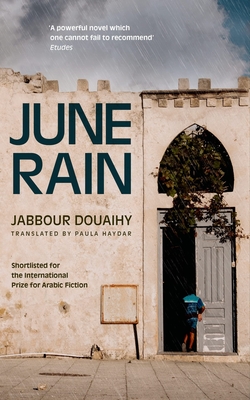
June Rain is a 2006 novel written by Lebanese critic and writer Jabbour Douaihy. The novel was published in 2006 by Dar Al-Nahar for Publishing and Distribution by Dar Al-Saqi’s in London. It has been translated to French, Italian, German, and English. The book was also shortlisted for the 2008 International Prize for Arabic Fiction.
